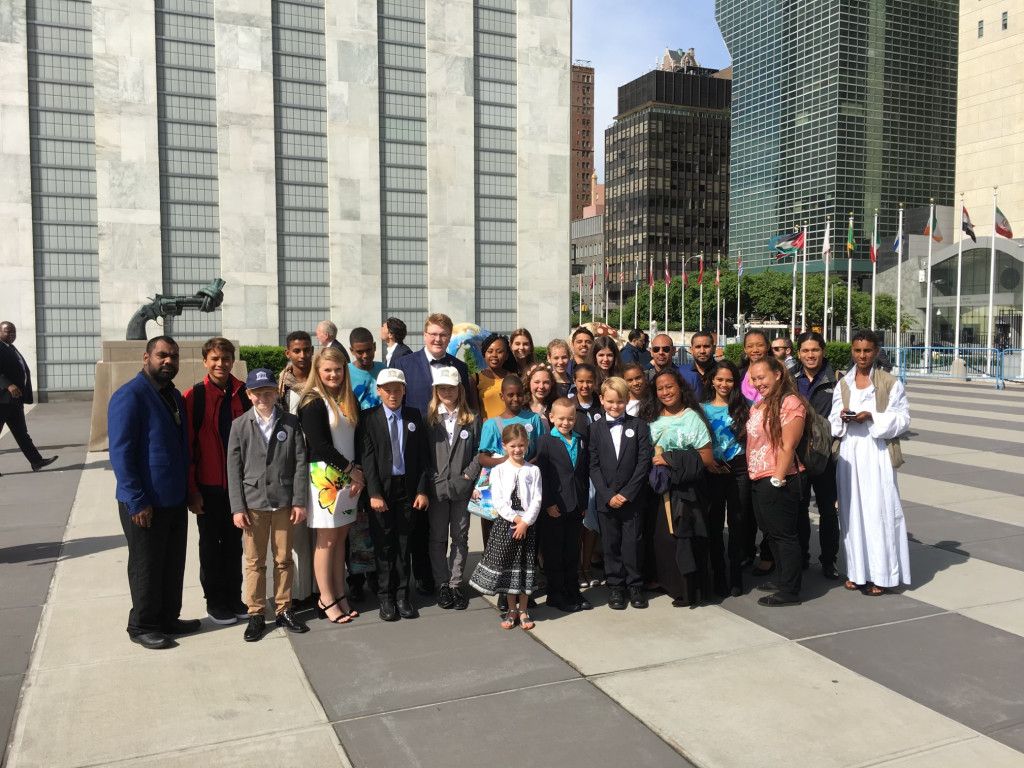Life Over Death
One of the speakers at COP27 here in Egypt yesterday, Seychelles President Wavel Ramkalawan, made me think of the day a few years ago when I had the honor to speak to the General Assembly at the United Nations headquarters in New York City and was joined on stage by an amazing group of children from all over the world. Some of those children with me on stage that day came from the Republic of Seychelles, a remote island country located in the Western Indian Ocean 1,500 miles off the coast of Africa.
“Like other islands, our contribution in the destruction of the planet is minimal. Yet we suffer the most.”
Wavel John Charles Ramkalawan
Seychelles President
Seychelles is one of earth’s absolute natural wonders with breathtaking, untarnished environments on and around its 115 islands. The residents there know the value of their natural environment and prove their dedication by implementing laws to protect nearly half of their entire country from any sort of development. Unfortunately, their thoughtful protections aside, Seychelles has a dire problem because 90% of its 100,000 residents live in three coastal communities which have an average elevation of only about 2 meters (6.5 or so feet). Folks there have lived along the water’s edge for as long as man has occupied Seychelles because the ocean is how they feed their families. Today Seychelles’ entire economy is dependent on the water as a fishery, a tourist destination, and as a port of call. And just like special places all over South Florida where I am from (places like the Florida Keys, Miami Beach, and the Everglades), these communities in Seychelles are at risk of becoming submerged from rising seas caused by a climate crisis that its residents played nearly no role in creating.
Small and large communities all over the world are using this year’s COP27 meeting here in Egypt to voice their concern over being subjected to the impact of our climate crisis but not having caused it in any material way, as compared to industrialized nations such as the United States, China, the European Union, and others. In some cases, those small, often poor, and developing nations that cause little of the world’s pollution are calling for climate-oriented reparations for what the United Nations is calling their ongoing “loss and damage.”
“This COP27 gathering offers us an opportunity to either make history or, if you like, be the victim of history. Those that pollute the most should pay the most in order to get our planet off this track of climate crisis”
Macky Sall
President of Senegal
Chairman, African Union
In fact, COP27 began this week with news of a diplomatic agreement to officially make the discussion about climate-oriented reparations part of this year’s Conference. Developing countries have been asking to debate climate reparations since 1991 when the tiny island nation of Vanuata first publicly questioned who should pay for the climate catastrophe. In fact, it’s likely that one of the biggest stories from this year’s conference will be the news that this topic will be officially discussed and debated. Ultimately, the agreement to discuss climate reparations here at COP27 centers on what the United Nations calls “cooperation and facilitation,” rather than actual “liability and damage compensation” as smaller nations were demanding. The hope here at COP27 amongst those advocating a discussion on climate reparations is to have decisions on “loss and damage,” as it’s called, by 2024. And I, for one, for now think that that’s a wise decision.
Developed nations, and that most certainly includes the United States, have not made nearly enough progress towards the transition from a fossil fuel-based economy to one based on sustainable energy, nor in reducing its carbon output. In fact, the lack of progress in the United States is nothing short of pathetic. Shameful even. So, if we are to ever fix the climate crisis, we have a great deal of work to do, work that will be costly, and it needs to happen much faster than has been the case thus far.
But just as our renowned space agency, NASA, has led exploration amongst the stars, America must lead the world towards eliminating every possible drop of fossil fuel use as soon as absolutely possible. And it is my belief that if the United States truly makes solving our climate crisis a priority by both government and industry, we will not only transition our economy to one fueled by sustainable energy but that the world will follow America’s lead.
And the world’s nations working together will be absolutely critical when one considers the annual estimated cost per year to transition to sustainable energy is estimated to be between $4 and $6 Trillion over the next decade or so. And, speaking of the cost and challenges, consider the report published this past summer by Professor Aviel Verbruggen, an energy and environmental economist from the University of Antwerp in Belgium, who used data from the World Bank to estimate that the oil and gas industry produce an estimated profit of $2.8 Billion per day.
“These profits have enabled the fossil fuel industry to combat all efforts to switch our energy systems. We have to dismantle such profit seeking systems and build our future based on accessible and distributed renewable energy that is more sustainable and democratic in every way.”
May Boeve
350.org
“Loss and damage” topics must, most certainly, be addressed one day soon but today our key priority needs to be making significant progress in transitioning our global energy system to one based on sustainable sources in places like the United States. The stakes, as Vice President Gore said this week while here in Egypt, are truly life over death.

